La crema al retinolo per il viso è diventata un punto fermo nelle routine di cura della pelle di molti, grazie alla sua comprovata efficacia nel combattere i segni dell'invecchiamento e migliorare la consistenza della pelle. Mentre entriamo nel 2025, la domanda di prodotti a base di retinolo continua a crescere, guidata da una combinazione di convalida scientifica ed entusiasmo dei consumatori. Questa guida approfondisce il potenziale di mercato della crema al retinolo per il viso, esplorando i fattori che alimentano la sua popolarità e le opportunità che presenta per gli acquirenti aziendali.
Sommario:
– Potenziale di mercato: perché la crema al retinolo per il viso è una merce calda
– Esplorazione dei tipi più popolari di crema al retinolo per il viso
– Affrontare i problemi comuni dei consumatori con la crema al retinolo
– Innovazioni e nuovi prodotti nel mercato della crema al retinolo
– Considerazioni chiave quando si acquista una crema al retinolo per il viso
– Conclusione: il futuro della crema al retinolo per il viso nel settore della cura della pelle
Potenziale di mercato: perché la crema al retinolo per il viso è una merce calda
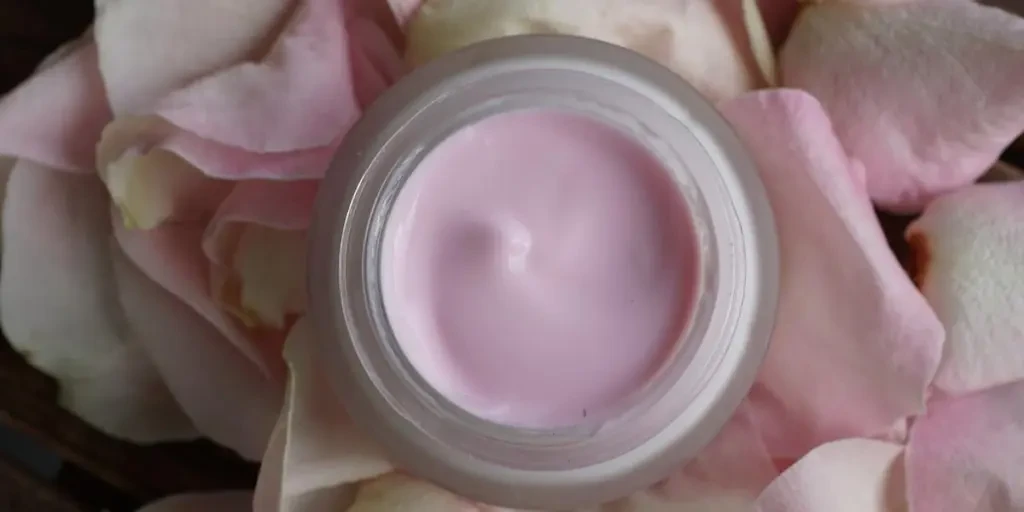
Le tendenze dei social media guidano la domanda
Nell'era digitale, le piattaforme di social media come Instagram e TikTok sono diventate potenti catalizzatori per le tendenze di bellezza. Hashtag come #RetinolResults e #SkincareRoutine hanno accumulato milioni di post, mostrando trasformazioni prima e dopo che evidenziano i benefici del retinolo. Influencer e dermatologi spesso promuovono le creme al retinolo, creando un effetto a catena che stimola l'interesse e la domanda dei consumatori. La natura visiva di queste piattaforme consente agli utenti di vedere risultati tangibili, rendendo le creme al retinolo un must nella ricerca di una pelle impeccabile.
Allineamento con le tendenze più ampie della cura della pelle
Le creme al retinolo sono perfettamente allineate con diverse tendenze più ampie per la cura della pelle che hanno guadagnato slancio negli ultimi anni. Il passaggio ai prodotti anti-invecchiamento è un fattore determinante, poiché i consumatori cercano soluzioni per mantenere una pelle giovane. Secondo un rapporto di Research and Markets, il mercato globale dei prodotti antirughe, che include le creme al retinolo, dovrebbe crescere da 13.06 miliardi di USD nel 2023 a 20.50 miliardi di USD entro il 2030, con un CAGR del 6.65%. Questa crescita è alimentata dai progressi nella tecnologia per la cura della pelle e da una crescente consapevolezza della salute della pelle.
Inoltre, la tendenza verso prodotti di bellezza naturali e puliti ha influenzato anche il mercato del retinolo. I consumatori sono sempre più alla ricerca di formulazioni che combinino la potenza del retinolo con ingredienti naturali per ridurre al minimo l'irritazione e aumentare l'efficacia. Ciò ha portato allo sviluppo di prodotti ibridi che soddisfano la domanda sia di prestazioni che di sicurezza.
Aree di interesse e crescita dei consumatori
L'interesse dei consumatori per le creme al retinolo non è solo una tendenza passeggera, ma il riflesso di un impegno più profondo per una cura della pelle efficace. Il mercato delle creme per il viso, che include i prodotti al retinolo, dovrebbe crescere da 17.88 miliardi di dollari nel 2024 a 26.24 miliardi di dollari nel 2028, con un CAGR del 10.1%, secondo un rapporto professionale. Questa crescita è guidata da diversi fattori, tra cui l'aumento della personalizzazione e della personalizzazione nella cura della pelle, la domanda di ingredienti naturali e puliti e l'espansione della vendita al dettaglio digitale e dell'e-commerce.
Una delle aree di crescita chiave per le creme al retinolo è la crescente attenzione alla cura della pelle maschile. Tradizionalmente dominato dalle consumatrici donne, il mercato della cura della pelle sta assistendo a un significativo aumento dell'interesse maschile. Gli uomini stanno diventando più consapevoli della salute della loro pelle e stanno attivamente cercando prodotti che affrontino problemi specifici come l'invecchiamento e l'acne. Ciò rappresenta un'opportunità redditizia per le aziende di attingere a un segmento relativamente inutilizzato.
In conclusione, il potenziale di mercato per la crema al retinolo per il viso è immenso, guidato dalle tendenze dei social media, dall'allineamento con i più ampi movimenti per la cura della pelle e dal crescente interesse dei consumatori. Mentre la domanda di soluzioni efficaci e innovative per la cura della pelle continua a crescere, le creme al retinolo sono destinate a rimanere un punto fermo nelle routine di bellezza in tutto il mondo. Gli acquirenti aziendali, inclusi rivenditori e grossisti, possono capitalizzare questa tendenza offrendo prodotti al retinolo di alta qualità che soddisfano le mutevoli esigenze dei consumatori.
Esplorazione dei tipi più popolari di crema al retinolo per il viso
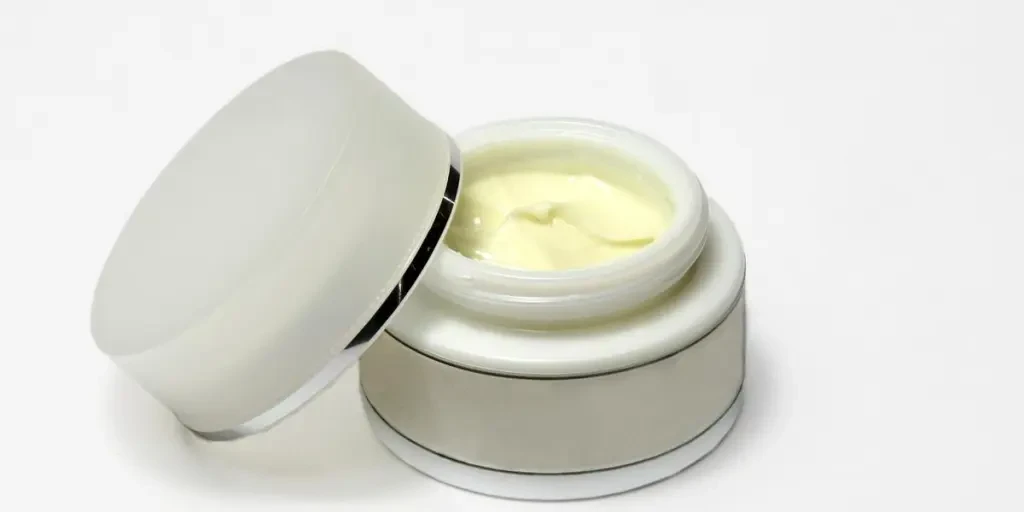
Pro e contro delle diverse concentrazioni di retinolo
Le creme al retinolo sono disponibili in diverse concentrazioni, ciascuna delle quali offre benefici e potenziali svantaggi distinti. Concentrazioni più basse, come dallo 0.1% allo 0.3%, sono ideali per i principianti e per chi ha la pelle sensibile. Queste formulazioni, come la crema COSRX Retinol 0.3, sono delicate e riducono al minimo il rischio di irritazione, pur offrendo benefici anti-invecchiamento. Tuttavia, potrebbero richiedere più tempo per mostrare risultati visibili rispetto a concentrazioni più elevate.
Concentrazioni di fascia media, in genere tra lo 0.5% e l'1%, raggiungono un equilibrio tra efficacia e tollerabilità. Prodotti come il Retinolo in Squalane di The Ordinary offrono un effetto anti-invecchiamento più potente, promuovendo un turnover cellulare più rapido e riducendo linee sottili e rughe. Queste concentrazioni sono adatte per gli utenti che hanno acclimatato la loro pelle al retinolo e cercano miglioramenti più evidenti.
Concentrazioni elevate, come l'1% e oltre, sono riservate agli utilizzatori esperti di retinolo e a coloro che hanno una pelle resiliente. Queste formulazioni, come la Rapid Wrinkle Repair® 0.3% Retinol Pro+ Night Cream di Neutrogena, offrono significativi benefici anti-invecchiamento, tra cui la riduzione delle rughe profonde e delle macchie scure. Tuttavia, comportano un rischio maggiore di irritazione e devono essere utilizzate con cautela, in particolare per coloro che hanno una pelle sensibile.
Analisi degli ingredienti: cosa rende una buona crema al retinolo?
Una crema al retinolo di alta qualità è caratterizzata dalla sua formulazione, che include ingredienti complementari che migliorano l'efficacia del retinolo, mitigando al contempo i potenziali effetti collaterali. Ad esempio, l'inclusione di agenti idratanti come l'acido ialuronico e la glicerina, come si vede in Crystal Retinal 8 di Medik24, aiuta a mantenere l'idratazione della pelle e a ridurre la secchezza. Questi ingredienti assicurano che la pelle rimanga morbida e idratata, contrastando gli effetti disidratanti del retinolo.
Anche gli antiossidanti come la vitamina E e l'estratto di tè verde sono componenti cruciali. Proteggono la pelle dai danni dei radicali liberi e migliorano la stabilità del retinolo. Prodotti come la crema viso e corpo Anti-Aging di Advanced Clinicals incorporano questi antiossidanti, offrendo una protezione e un nutrimento completi per la pelle.
Inoltre, la presenza di agenti lenitivi come aloe vera e camomilla, presenti in molte creme al retinolo, aiuta a calmare la pelle e a ridurre l'irritazione. Questi ingredienti botanici sono particolarmente benefici per i tipi di pelle sensibili, assicurando che il trattamento al retinolo sia efficace e delicato.
Feedback dei consumatori: cosa dicono gli acquirenti
Il feedback dei consumatori è prezioso per valutare l'efficacia e la tollerabilità delle creme al retinolo. Molti utenti di Elizabeth Arden's Retinol + HPR Ceramide Rapid Skin Renewing Water Cream apprezzano la sua capacità di fornire i benefici del retinolo senza causare irritazioni. La formula montata di questo prodotto e l'inclusione di ceramidi sono state elogiate per i loro effetti leviganti e rassodanti.
Allo stesso modo, la crema rigenerante Rapid Wrinkle Repair® di Neutrogena ha ottenuto recensioni positive per la sua ricca esperienza idratante e i risultati visibili nella riduzione di linee sottili e rughe. Gli utenti hanno evidenziato la capacità del prodotto di fornire un'idratazione profonda e migliorare la consistenza della pelle, rendendolo una scelta popolare tra coloro che cercano soluzioni anti-invecchiamento efficaci.
D'altro canto, alcuni consumatori hanno segnalato di aver sperimentato un'irritazione iniziale con prodotti al retinolo a concentrazione più elevata. Questo feedback sottolinea l'importanza di iniziare con concentrazioni più basse e aumentare gradualmente l'uso per aumentare la tolleranza cutanea. Nel complesso, le recensioni dei consumatori sottolineano la necessità di formulazioni che bilancino efficacia e comfort cutaneo.
Come affrontare i problemi comuni dei consumatori con la crema al retinolo
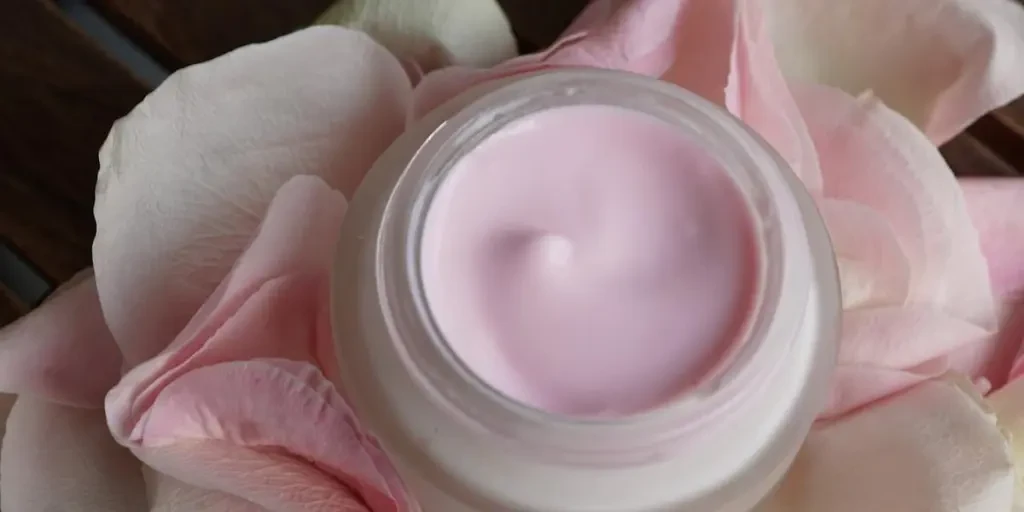
Sensibilità e irritazione: trovare formulazioni delicate
Sensibilità e irritazione sono preoccupazioni comuni tra gli utilizzatori di retinolo, in particolare quelli con pelle sensibile. Per affrontare questi problemi, i produttori hanno sviluppato formulazioni che includono ingredienti lenitivi e idratanti. Ad esempio, il siero complesso di retinolo 0.3% con peptidi di First Aid Beauty è progettato per fornire una pelle soda e linee sottili ridotte con irritazione minima. L'inclusione di peptidi e squalano aiuta a rafforzare la barriera di idratazione della pelle, riducendo la probabilità di rossori e desquamazione.
Inoltre, prodotti come Sensitive Retinol Oil di Byoma offrono un trattamento delicato ma efficace per la pelle sensibile. Questo trattamento al retinolo a base di olio include lipidi barriera e squalano, che aiutano a ridurre visibilmente le linee sottili e le rughe senza alterare l'equilibrio della pelle. Queste formulazioni sono ideali per chi usa per la prima volta il retinolo e per chi è incline alle irritazioni.
Efficacia: garantire risultati visibili
Garantire risultati visibili è fondamentale per la soddisfazione del consumatore. Le creme al retinolo ad alta potenza, come la Retinal 0.2% Emulsion di The Ordinary, offrono benefici anti-invecchiamento migliorati accelerando il turnover cellulare e migliorando la consistenza della pelle. Questi prodotti sono ottimizzati per l'uso notturno, consentendo alla pelle di ringiovanire mentre l'utente dorme.
Inoltre, sistemi di erogazione innovativi, come la tecnologia dei micropolimeri utilizzata nel Retinol Forte Plus Smoothing Serum di HH Science, migliorano la stabilità e l'assorbimento del retinolo. Questa tecnologia assicura che i principi attivi penetrino in profondità nella pelle, fornendo miglioramenti significativi nella consistenza e nella compattezza della pelle.
Prezzo vs. Qualità: Bilanciamento tra Costi e Benefici
Bilanciare costo e qualità è una considerazione fondamentale per gli acquirenti aziendali. Mentre prodotti di fascia alta come la gamma Rapid Wrinkle Repair® di Neutrogena offrono formulazioni avanzate e risultati visibili, ci sono anche opzioni convenienti che non scendono a compromessi sulla qualità. Il Revive Bio-Retinol Face Serum di Wildcraft, ad esempio, fornisce un'alternativa naturale ai retinoidi tradizionali a un prezzo competitivo. Questo prodotto sfrutta i benefici del Rambutan, un ingrediente di origine vegetale, per levigare e rassodare la pelle senza causare irritazioni.
Gli acquirenti aziendali dovrebbero considerare i benefici a lungo termine e la soddisfazione del consumatore associati a ciascun prodotto. Investire in creme al retinolo di alta qualità che forniscono risultati costanti può migliorare la reputazione del marchio e la fedeltà dei clienti, guidando in ultima analisi le vendite e la redditività.
Innovazioni e nuovi prodotti nel mercato della crema al retinolo
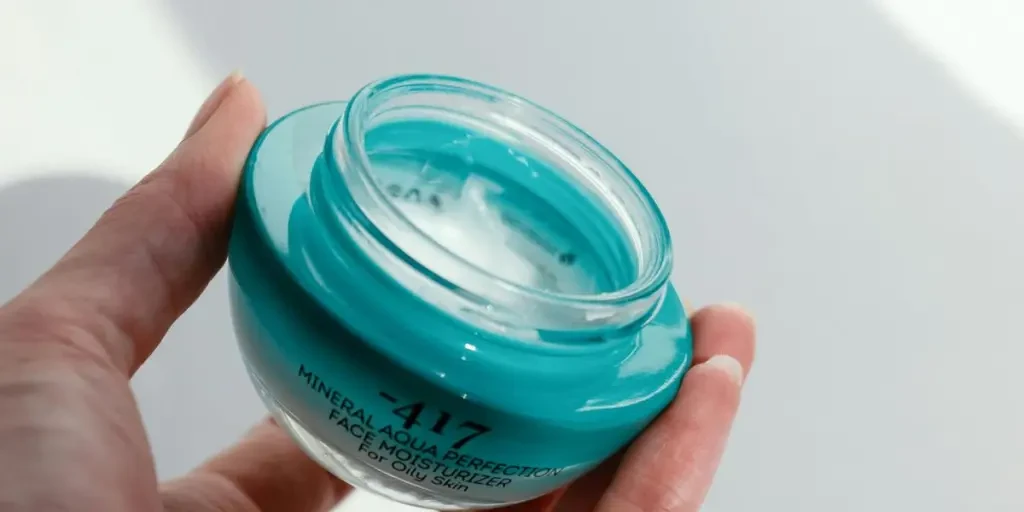
Formulazioni e tecnologie all'avanguardia
Il mercato delle creme al retinolo sta assistendo a innovazioni significative nelle formulazioni e nelle tecnologie. La tecnologia del retinoide incapsulato, come quella di Very Amazing Retinal di Go-To, consente di ridurre l'irritazione cutanea, aumentandone al contempo l'efficacia. Questa tecnologia assicura che il retinoide venga distribuito in modo controllato, riducendo al minimo il rischio di irritazione e massimizzando i benefici anti-invecchiamento.
Un'altra innovazione degna di nota è l'uso di alternative al bio-retinolo, come il bakuchiol, che offre benefici simili al retinolo senza gli effetti collaterali associati. Prodotti come Plant Stem Cell Retinol Alternative Moisturizer di KORA Organics utilizzano una miscela di bakuchiol ed erba medica per fornire efficaci benefici anti-invecchiamento pur essendo delicati sulla pelle.
Marchi emergenti da tenere d'occhio
Diversi marchi emergenti stanno facendo scalpore nel mercato delle creme al retinolo con i loro prodotti innovativi. Wildcraft, un'azienda di prodotti per la cura della pelle di proprietà indigena, si distingue con il suo Revive Bio-Retinol Face Serum, che si rivolge ai tipi di pelle sensibili e sottolinea la sostenibilità. Allo stesso modo, Stripes, un marchio creato da Amyris e Naomi Watts, si concentra sulle esigenze delle donne in menopausa con la sua Rejuvenating Night Cream, che combina retinoidi delicati con ingredienti attivi naturali.
Questi marchi stanno guadagnando terreno rispondendo a specifiche esigenze dei consumatori e offrendo formulazioni uniche che li differenziano dai prodotti tradizionali. Il loro impegno verso l'inclusività, l'accessibilità economica e la sostenibilità trova riscontro in un segmento crescente di consumatori attenti all'ambiente.
Prodotti al retinolo sostenibili ed etici
La sostenibilità e l'approvvigionamento etico stanno diventando sempre più importanti nel settore della cura della pelle. Marchi come Rothea stanno aprendo la strada con prodotti come la Resilience Cream, che contiene sei ingredienti scientificamente provati, tra cui bakuchiol e collagene fito vegano. Questo prodotto è confezionato in un imballaggio certificato FSC e utilizza un sistema di ricarica basato su pod, evidenziando l'impegno del marchio verso pratiche eco-compatibili.
Allo stesso modo, la Pumpkin Pro-Retinol Cream di Byroe utilizza ingredienti riciclati e bio-retinolo, offrendo un approccio sostenibile all'approvvigionamento degli ingredienti. Questi prodotti non solo forniscono soluzioni efficaci per la cura della pelle, ma sono anche in linea con la crescente preferenza dei consumatori per prodotti ecologicamente responsabili.
Considerazioni chiave quando si acquista una crema al retinolo per il viso
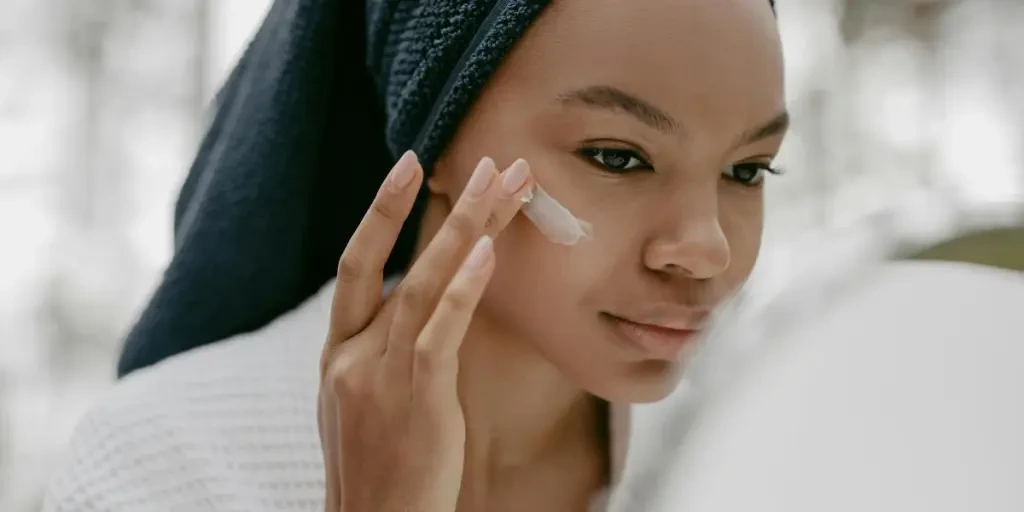
Garanzia di qualità e certificazione
Garantire la garanzia della qualità e la certificazione è fondamentale quando si acquistano creme al retinolo. I prodotti devono essere sottoposti a rigorosi test per verificarne l'efficacia e la sicurezza. Ad esempio, la crema viso e corpo anti-invecchiamento di Advanced Clinicals è stata sottoposta a test dermatologici e allergologici per garantirne la compatibilità con i tipi di pelle sensibili. Le certificazioni di organizzazioni affidabili possono convalidare ulteriormente la qualità del prodotto e creare fiducia nei consumatori.
Affidabilità e reputazione dei fornitori
L'affidabilità e la reputazione del fornitore sono fattori critici nel processo di approvvigionamento. Gli acquirenti aziendali dovrebbero collaborare con fornitori che hanno una comprovata esperienza nel fornire costantemente prodotti di alta qualità. Marchi come Neutrogena e The Ordinary si sono affermati come fornitori affidabili con una solida reputazione di innovazione ed efficacia nel settore della cura della pelle.
Imballaggio e durata di conservazione
Imballaggio e durata di conservazione sono considerazioni essenziali per le creme al retinolo, poiché questi prodotti sono sensibili alla luce e all'esposizione all'aria. L'imballaggio airless pump, come quello utilizzato da Soft Services per il loro siero al retinolo Software Update, aiuta a preservare l'integrità degli ingredienti e prolunga la durata di conservazione del prodotto. Garantire che l'imballaggio sia funzionale e sostenibile può aumentare l'attrattiva del prodotto per i consumatori attenti all'ambiente.
Conclusione: il futuro della crema al retinolo per il viso nel settore della cura della pelle

Il futuro della crema al retinolo per il viso nel settore della cura della pelle sembra promettente, con continue innovazioni nelle formulazioni, nelle tecnologie e nelle pratiche sostenibili. Con l'evoluzione delle preferenze dei consumatori, i marchi che danno priorità all'efficacia, alla sicurezza e alla responsabilità ambientale probabilmente guideranno il mercato. Gli acquirenti aziendali dovrebbero rimanere informati sulle tendenze e i progressi emergenti per prendere decisioni di approvvigionamento strategiche che siano in linea con le richieste dei consumatori e stimolino la crescita aziendale.
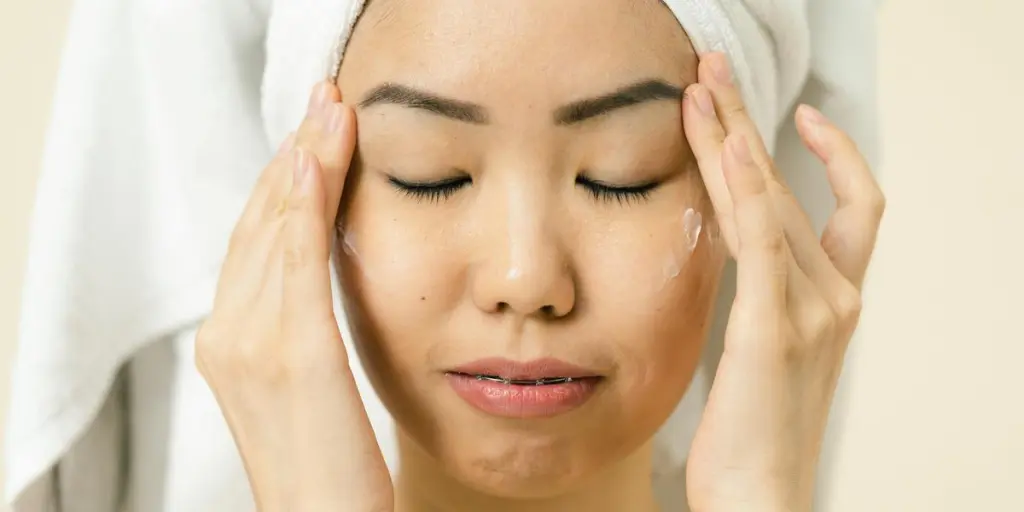




 বাংলা
বাংলা Nederlands
Nederlands English
English Français
Français Deutsch
Deutsch हिन्दी
हिन्दी Bahasa Indonesia
Bahasa Indonesia Italiano
Italiano 日本語
日本語 한국어
한국어 Bahasa Melayu
Bahasa Melayu മലയാളം
മലയാളം پښتو
پښتو فارسی
فارسی Polski
Polski Português
Português Русский
Русский Español
Español Kiswahili
Kiswahili ไทย
ไทย Türkçe
Türkçe اردو
اردو Tiếng Việt
Tiếng Việt isiXhosa
isiXhosa Zulu
Zulu